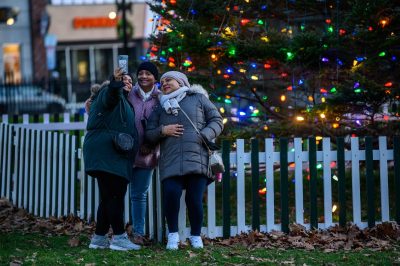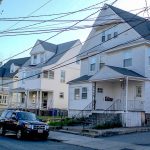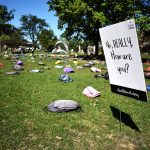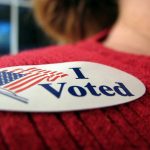An approaching winter and increasing leniency among residents in holding each other to public health guidelines have contributed to Massachusetts’ recent uptick in COVID-19 cases, according to experts.

Daily cases have increased dramatically since the summer, when Massachusetts reported fewer than 500 cases most days. The Commonwealth reported 5,675 cases and 89 deaths Wednesday, according to the state’s Department of Public Health, with an average positivity rate of 5.86 percent in the last seven days.
Informal social interactions are the driving force behind growing case numbers statewide, said Philip Landrigan, director of Boston College’s global public health program.
“Whenever there’s a gathering … if there’s somebody there who’s shedding the virus and who’s not masked and who’s not at a distance from other people,” Landrigan said, “then there’s a risk that infected person will pass the virus to other people and propagate the epidemic.”
Those celebrating winter holidays should avoid parties and large gatherings, he said. More people are gathering indoors because of cold weather, Landrigan added, making the virus more likely to spread.
He said the Commonwealth has done a “reasonable job” in its COVID-19 response, but that the state and its residents should remain cautious because the winter months tend to bring holidays and other incentives for people to mingle in groups.
“My strong advice is that people not confuse personal freedom with the unrestricted right to infect other people,” Landrigan said. “To say it more bluntly, people have to behave responsibly.”
Massachusetts will roll back its reopening process starting Sunday in the face of soaring COVID-19 case numbers, which spiked more severely after Thanksgiving.
Returning to Phase Three, Step One, the rollback will mandate mask-wearing at gyms, offices and restaurants, as well as reduce outdoor gatherings from 100 to 50 people and several indoor locations from 50 to 40 percent capacity.
Gov. Charlie Baker said at a press conference Tuesday that cases have trended upward since Thanksgiving, increasing the demand for limited hospital beds and health care professionals.
COVID-19 hospitalizations have risen by about 150 percent over the last four weeks, according to Baker. Fewer than 10 percent of adult inpatient beds are now available at 11 of Massachusetts’ hospitals, he added.
“The days of most people doing most of the right things are probably not enough,” Baker said. “We’re asking everyone to join us to step up their vigilance every day, in every setting: work, home, school, everywhere.”
Sarah Forrester, assistant professor at the University of Massachusetts Medical School, said “COVID fatigue” has also factored into the uptick.
“It’s easier to pretend it doesn’t exist so that they continue to live their lives the way they want to live them,” Forrester said. “It’s somewhat understandable, but it is also problematic.”
Adults must take the responsibility to prevent their children and teenagers from going out recklessly with friends, Forrester said, while colleges should have known beforehand students would propel community spread.
Even when social distancing, Forrester said, indoor activities with those outside one’s household are risky.
She said “mixed messages” from the federal government about the severity of the virus have exacerbated health concerns as well.
Residents will have to wait to see if Baker’s new restrictions will help curb the infection rate, Forrester said.
“What Charlie Baker did [Tuesday] was a good step to roll back the reopening,” Forrester said. “I’m not sure if he rolled it back far enough.”
The coronavirus spreads easily through interstate travel, she said, because states have varying degrees of restrictions in place. In the wake of this, she said, stronger government restrictions may be the only way to get the virus under control.
“I recognize the balance between shutting everything down being problematic for business,” Forrester said. “But it’s also going to be problematic if everyone’s afraid to come to your business because their friends are all dead.”














